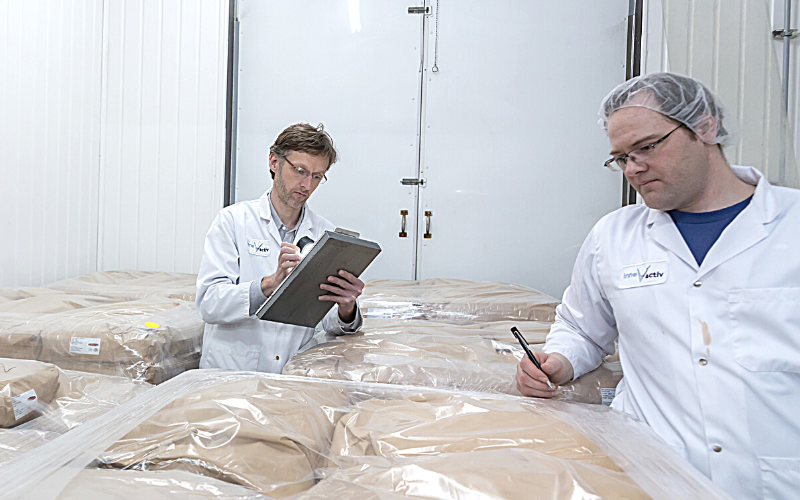If you have never experienced problems related to your supply chain, you are among the lucky ones!
Recently, the pandemic, the Suez canal crisis, voluntary or involuntary shutdowns due to air pollution and energy shortages, and more frequent storms and droughts have affected natural ingredients suppliers all over the globe.
When you negotiate deals for natural ingredients in bulk, price is always part of the equation, but other criteria associated with reliability and supply chain robustness should not be ignored.
This is especially true for natural ingredients since :
- Plants grow at their rhythm and may be available on a seasonal basis;
- Human intervention is needed for harvest, transportation and processing;
- Extraction techniques must be skillfully mastered to preserve the ingredient’s full potential to you and your valued customers.
Three criteria to consider when choosing a natural ingredients supplier :
Supplier history
You cannot buy natural ingredients in bulk as you would for nails or wires. Ingredients are still harvested mainly by humans. Your ingredient supplier must maintain a close relationship with its upstream supply chain. A vendor specializing in one type of ingredient may be better prepared to face supply challenges than a jack-of-all-trade looking to trade anything for a quick profit.
For the last 15 years, InnoVactiv has specialized in marine ingredients. We have thus developed solid relationships with a vast network of local seaweed suppliers and fishermen working sustainably to ensure consistency and quality. As a result, we continued to serve our clients through the pandemic without any supply problems, even as our sales increased.
Technical capacities of a natural ingredients supplier
Consumers want natural products with higher efficacy and are more demanding than ever in terms of quality. It means developing products with higher concentrations, lower effective doses, or using convenient, fun product formats for formulators.
This is often a challenge for liquid products. Passing a certain concentration threshold, molecules are no longer soluble and may start to agglomerate in lumps. Our deep mastery of extraction and fractionation techniques allows us to overcome these challenges to obtain highly concentrated liquid extracts devoid of precipitates or solubility problems.
For dry ingredients, extraction processes should be designed and adapted to each vegetable biomass and the type of molecule to be extracted. Ideally, aqueous processes involving pure water without harsh chemicals or solvents help preserve the ingredient’s natural qualities and avoid regulatory hurdles.
Finally, natural ingredients might vary from one harvest to another. Your supplier must be able to deliver components with the same quality year after year. Strategies exist to ensure consistency even through the intrinsic variability of natural biomasses, always backed by rigorous quality control to safeguard that your product is safe for its intended use.
Choosing a supplier with a solid scientific background, in-depth knowledge of human physiology and mastery of various extraction and purification technologies will help you distinctively position your products.
Scientific claims
Every supplier can claim to have the highest and most effective ingredients. However, the best support for that should come from third-party studies.
Not all studies are created equal, though. In observation studies, you analyze what is occurring naturally and draw your conclusions. This can be interesting for well-known nutrients but usually offers little support for plant extracts.
In intervention studies, investigators introduce changes in participants’ diets to influence their health status. The gold standard in intervention studies is :
« randomized, double-blinded, placebo-controlled.»
These studies allow testing for the benefits of your plant extract in a real-life setting and comparing it to untreated controls.
Be on the look for « open-label » studies, where there is usually no placebo, no randomization, and no blinding. In this case, subjects and investigators know what product they received and can change their lifestyle more than expected. These studies are at higher risk of reporting false-positive results.
Conclusion
Choosing a natural ingredients supplier can have a significant impact on the development and success of a product. It should be regarded not as a “one-time deal” but as a relationship of collaboration.
We do not consider ourselves as mere vendors but rather as a partner that can assist you at all stages of your product development process, from developing product concepts to formulation, claims and regulatory affairs.
Would you like some help with your next natural product development? Contact us to speak directly with a member of our team.
